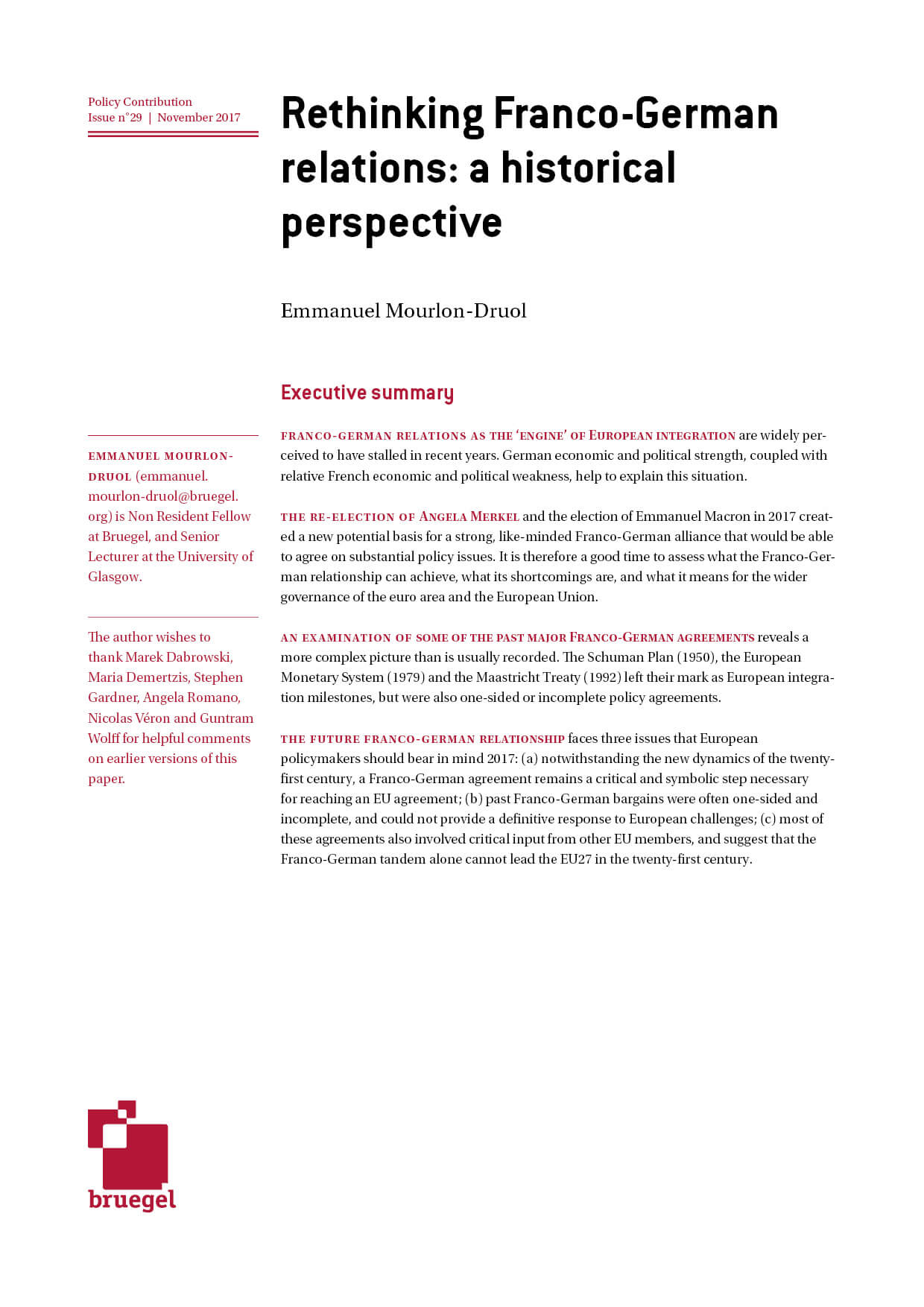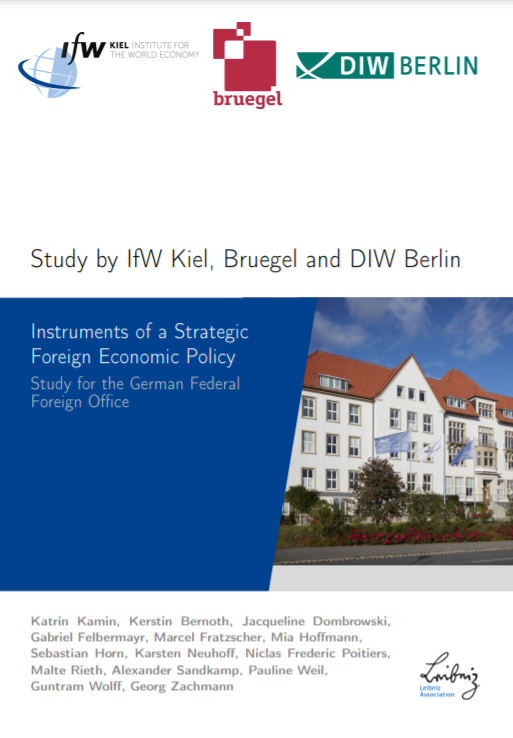Policy Contribution
Rethinking Franco-German relations: a historical perspective
Franco-German relations as the ‘engine’ of European integration are widely perceived to have stalled in recent years. This policy contribution assesses what the Franco-German relationship can achieve, what its shortcomings are, and what it means for the wider governance of the euro area and the European Union.
Franco-German relations as the ‘engine’ of European integration are widely perceived to have stalled in recent years. German economic and political strength, coupled with relative French economic and political weakness, help to explain this situation.
The re-election of Angela Merkel and the election of Emmanuel Macron in 2017 created a new potential basis for a strong, like-minded Franco-German alliance that would be able to agree on substantial policy issues. It is therefore a good time to assess what the Franco-German relationship can achieve, what its shortcomings are, and what it means for the wider governance of the euro area and the European Union.
An examination of some of the past major Franco-German agreements reveals a more complex picture than is usually recorded. The Schuman Plan (1950), the European Monetary System (1979) and the Maastricht Treaty (1992) left their mark as European integration milestones, but were also one-sided or incomplete policy agreements.
The future Franco-German relationship faces three issues that European policymakers should bear in mind 2017: (a) notwithstanding the new dynamics of the twenty-first century, a Franco-German agreement remains a critical and symbolic step necessary for reaching an EU agreement; (b) past Franco-German bargains were often one-sided and incomplete, and could not provide a definitive response to European challenges; (c) most of these agreements also involved critical input from other EU members, and suggest that the Franco-German tandem alone cannot lead the EU27 in the twenty-first century.













